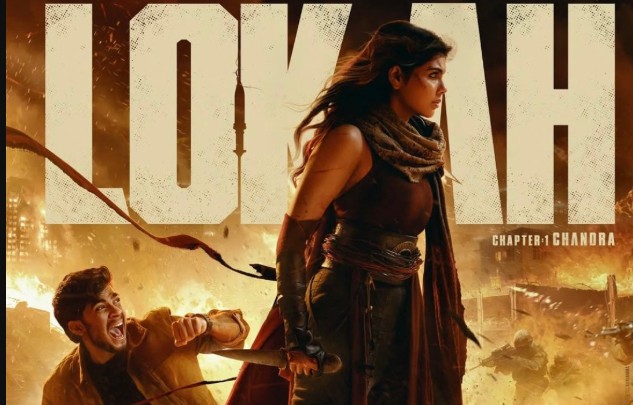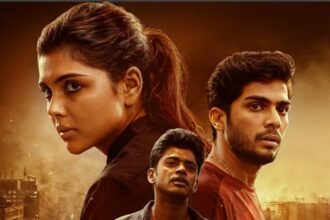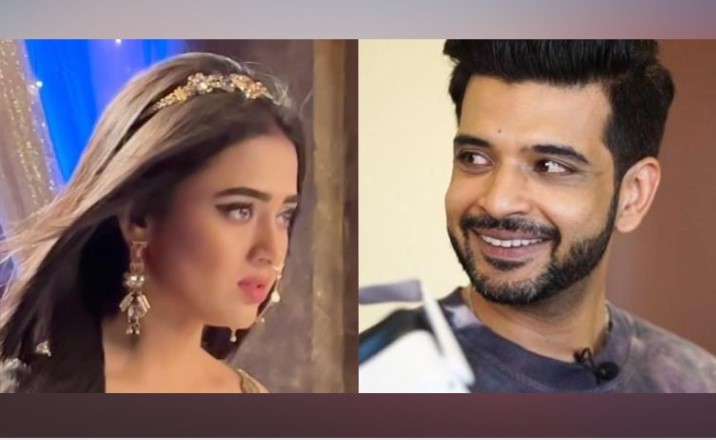September 2, 2025: There’s something oddly hypnotic about Lokah. It doesn’t scream for attention with over-polished effects or loud mythological name-drops. Instead, it walks into Indian cinema like its protagonist, quietly, purposefully, and with a history that doesn’t need validation.
At first glance, Lokah Chapter 1: Chandra may appear like another entry in the ever-expanding superhero trend. But spend five minutes in Dominic Arun’s world, and it becomes clear, this isn’t about flying capes or glowing tridents. This is about reclaiming narrative space.
‘Lokah’ : A Thrilling Blend of Power, Myth, and Heart
The brilliance of Lokah lies in its refusal to be grand for grandeur’s sake. There’s visual sophistication, yes, but it’s never used to wallpaper over weak writing. Dominic Arun’s script is tight and thoughtful, layering fantasy with history, and myth with lived experience.
At the centre of it all is Chandra, played with cool restraint by Kalyani Priyadarshan. A woman with a mysterious condition, sunlight boils her skin, she moves through Bengaluru’s nights like a whisper. Slowly, we learn she’s not just avoiding the sun. She’s avoiding a past that’s older than most cities.
The film’s central idea is rooted in Kerala folklore, particularly the tale of Kalliyankattu Neeli, a feared and misunderstood yakshi. But Arun doesn’t paint Neeli as a vengeful ghost. Instead, she’s reimagined as a protector of the oppressed, a woman erased from history because she couldn’t be controlled. That reclamation, both mythological and metaphorical, is the heart of Lokah.
Worldbuilding with Intent, Not Just Hype
It would’ve been easy to overdo the fantasy. But Lokah keeps its roots firm. The locations, urban yet oddly mystical, don’t feel like postcard cities. Bengaluru is not romanticised here; it’s just part of Chandra’s camouflage.
There’s precision in how the story moves between Chandra’s solitude and the chaotic energy of Sunny (Naslen) and Venu (Chandu Salimkumar), two lovable slackers who unknowingly find themselves part of something much bigger. The humour between them isn’t forced; it’s organic, and never undercuts the seriousness of the film’s core themes.
The film’s aesthetics, crafted by cinematographer Nimish Ravi and editor Chaman Chakko, are understated but striking. You won’t find a single shot screaming for Instagram likes, but every frame contributes to the film’s immersive rhythm. This is not spectacle for spectacle’s sake. It’s visual storytelling with weight.
Not Just a Hero, But a Mirror

Kalyani’s Chandra is all restraint and physical agility, which works to her advantage. Dominic Arun plays to her strengths, avoiding the trap of overburdening her with dramatic exposition. Her power isn’t just in punches; it’s in presence.
Yet, perhaps the real standout here is the film’s villain, Inspector Nachiyappa Gowda, played with chilling menace by Sandy. In a cinematic universe already hinting at spin-offs and sequels, Sandy’s transformation into a superpowered antagonist gives us a slow-burning dread. His misogyny isn’t just a character flaw, it’s what makes him dangerous in a world led by a woman who refuses to yield.
The contrast is stark. Chandra’s power is earned, grounded in pain and resistance. Nachiyappa’s is stolen, corrupted by entitlement. That conflict alone makes for compelling cinema.
The Universe Expands… Carefully
Yes, Lokah hints at a larger cinematic universe, there are cameos, nods to future characters (Tovino Thomas’ Chaathan, Sunny Wayne’s Kathanar, and a Dulquer Salmaan post-credit tease). But unlike other superhero franchises that lose steam trying to do too much too soon, Lokah doesn’t rush it.
If anything, the film’s only hiccup is in the second half, where subplots start crowding the main arc. A romance blooms, past lives are hinted at, and new characters emerge, some feeling underdeveloped in the process. But even here, Arun never lets go of his core thread: this is Chandra’s story. And it ends where it began, with her, walking alone but not powerless.
Lokah Chapter 1 isn’t trying to reinvent the superhero genre. It’s trying to reclaim it. From myth. From history. From male domination. And in doing so, it becomes one of the most grounded, thoughtful, and emotionally intelligent superhero films Indian cinema has attempted.
There’s strength in spectacle, sure. But in Lokah, there’s also strength in silence, in restraint, and in cultural memory.
This isn’t about saving the world with lasers. It’s about saving stories that were never allowed to be told.
Verdict: 4/5






